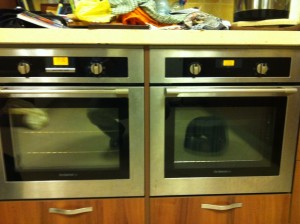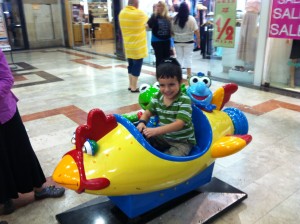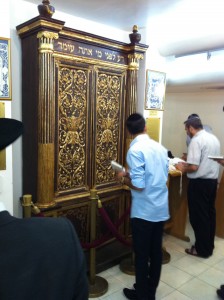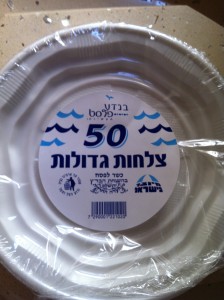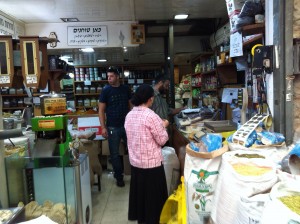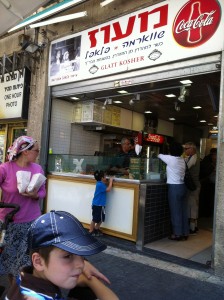Hey it’s Debbie making my blog debut. We’ve been here two weeks now. This does not qualify me as an expert on life in the Rova, but I can give my first impressions.
Surreal. It is a real community in a small town kind of way, a tourist destination, an ancient city with deep spiritual roots. It took awhile for me to realize that even though everybody was a stranger to me, they all knew each other and I was the stranger. Fortunately, it is a very kind and generous community. Which is good since we live on top of each other. No joke. It is the most densely populated area I have ever lived in. We have a small patio space (a mirpeset) in the back that is completely enclosed by our neighbors. There are no windows that I know of that do not open up onto someone’s mirpeset. Living in a warm climate as we do, the windows are often open and we can always hear the hustle and bustle of our neighbors.
The small town feel also comes from the fact that we are a bit isolated from the rest of Jerusalem. It takes about 10-15 minutes to walk out of the Old City. There is a bus and we can take cabs, but the traffic can make it a long way as well. Most of the Old City is not accessible by car (though a few come in and out sporadically, and there are a fair number of motorcycles/scooters) so getting goods in and out is tricky. Still there are several makolets (better than a convenience store but not quite a full grocery store), produce markets, and other shops. And like any good Orthodox neighborhood, enterprising families run businesses out of their homes from a grocery to a stationery shop. Many people also have meat, groceries, and produce delivered into the Rova.
The Rova is also a major tourist destination. It’s sort of like living in the middle of Disneyland. While I am out picking up some veggies for lunch I have to navigate around tour groups and other itinerant travelers. I am often asked the way to the Kotel (the Western or Wailing Wall) or change my route since the way is blocked by a tour listening to their guide expound upon some historical feature. I love the people watching. Nuns in light blue dresses, muslim women covered from head to toe, groups from Brazil, Italy, the U.S. and everywhere else. Teenagers on an adventure, families vacationing, seekers searching. It is totally fascinating. And wondrous – one small spot that can draw so many people.
And why do they come? That’s the third layer of living here. As an American it is mind blowing how old the city is. Layer upon layer of history. Modern – the courtyard in front of Yitzi’s school has a sign describing the role this neighborhood played in the Israeli War of Independence. Ancient – every day I pass above the Cardo, ruins from Roman times, and farther below are tunnels revealing earlier eras. Dan is getting a tour from an Israeli neighbor and can speak to the historical aspect of the Old City better than I can.
Of course it’s not just the history that draws people. This is a spiritual center for three major religions. There can be so much distraction from the tourists and the hustle and bustle, but very quietly pulses a deep spirituality. Hiding outside the limelight of the everyday tourists are the folks who come to connect to God. I have been so busy getting us set up, ready for school, and tending to an infant, that I haven’t been able to dig to deeply into this aspect of the Rova. But I am sure that will come in due time.

